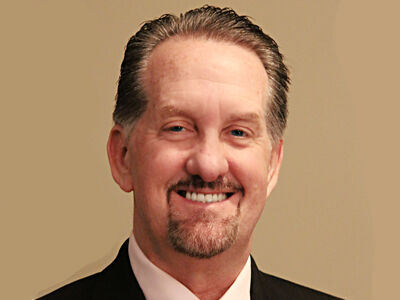Congressional Perks: House members, staff get daycare, on-call doctor
National News

Audio By Carbonatix
6:30 AM on Tuesday, November 4
Arthur Kane
(The Center Square) – Job perks like an on-call doctor, on-site daycare and millions of dollars for food, beverages and bottled water sound like something offered to employees of big tech firms.
But actually, taxpayers are paying for those perks for members of Congress and often their staff, an investigation by The Center Square found.
Since the 2019 fiscal year, taxpayers paid about $30 million for the Office of Attending Physician, which handles medical emergencies but also offers members routine care for just $650 a year, an analysis of congressional data shows.
At least $10 million was spent on the House Childcare Center that provides staff and members below-market-rate childcare starting at $1,100 a month, data and interviews show. With Washington, D.C., having some of the highest daycare costs, the perk is popular and there is a waiting list.
U.S. House staff and members also are feasting on taxpayer dollars with $30 million spent on food and beverages, and $4.1 million just on bottled water since 2019, an analysis of 3 million lines of House spending data shows.
House leadership and the Republican conference alone spent $122,000 on Chick-fil-A over the past six years. Former U.S. Rep. Steven Palazzo, R-Miss., led individual congressional offices by ordering nearly $15,000 in chicken sandwiches and chips from the popular fast food venue, The Center Square analysis showed.
Gillian Mason, executive director of Healthcare-NOW, a Texas nonprofit that advocates for universal single-payer health coverage, said it is great that lawmakers are getting good care at taxpayer expense but the average taxpayer has to struggle to get medical treatment.
"One of the reasons it is so difficult to push health care reform for regular people is our reps and senators aren't seeing the full force of what is happening out there because they're isolated," said Mason, who conceded she did not know about the attending physician perk in Congress until The Center Square told her about it. "They like their publicly funded health care … but won't give it to anyone else."
David Williams, president of the Taxpayers Protection Alliance, was outraged by the spending of taxpayer money for items that aren't vital to the operations of Congress.
"It's not Congress valuing their employees, it's the taxpayer paying for this," he said. "It's easy to spend someone else's money. I mean, that's the easiest thing in the world to do."
Williams said there was a spreadsheet shared around Congress listing all the free lunches available to staff and members so no one is starving on Capitol Hill with or without taxpayers chipping in.
Since no one in Congress – though some individual Congress members' communications directors provided email statements – would agree to an interview on the record about their spending of taxpayer money, The Center Square asked the Bipartisan Policy Center to explain why it thinks some of the spending is necessary. The center studies government efficiency and worked with the House Select Committee on the Modernization of Congress to make suggestions to improve Congress.
J.D. Rackey, the center's associate director of the Structural Democracy Project, said Congress works long and unusual hours and so staff need certain perks both to do their jobs and to hire good people.
"Congress has this problem of always losing its institutional memory and the idea is, if we want to be able to recruit and retain top talent, then we need to be able to pay them more and also have other professional development opportunities for staff and things like that, so that Congress can actually function the way it's intended," he told The Center Square. "Congress is a workplace, but it's kind of a little bit of an unusual workplace."
Samantha Carter, spokeswoman for the chief administrative officer in the House, wrote, "The CAO has no comment. Thank you." when The Center Square asked for basic information about the spending on various perks. Carter, paid $173,000 by taxpayers last year, according to Legistorm, didn't respond to subsequent emails.
Congressional members and staff do not get the federal employee health insurance and must sign up through Small Business Health Options Program, according to the U.S. Office of Personnel Management.
Big bucks to Politico, Bloomberg
Congressional members also are still spending millions in taxpayer funds for subscriptions to publications like Politico and Bloomberg despite Elon Musk's Department of Government Efficiency targeting similar subscriptions to left-leaning publications by USAID and other executive branches, the data shows.
Since 2019, Politico subscriptions by Congress cost taxpayers $14 million, Bloomberg received nearly $13 million, CQ Rollcall $5.4 million, and $2.5 million went to the National Journal, the data shows.
Punchbowl News received $1.5 million, Thompson-Reuters about $2 million and the New York Times about $870,000, data shows.
Williams conceded that Congress needs access to the news and information but questioned the cost.
"There's got to be a happy medium here," he said after The Center Square told him of the price tags. "There's got to be a way where Congress can still remain informed, whether it's Politico, Roll Call or whatever, but not spend tens of millions of dollars."
Since 2019, taxpayers have paid for roughly $88 million worth of publications and reference materials for members of the House and their staff.
Rackey said the House is working on internal ways to track bills and access staff lists without using some of the Politico Pro tools.
"I do have good news on that front in that over the past few years, as the work of the modernization committee and the House digital service has been ramping up," he said. "They've been building more systems internally ... Congress is never going to limit, saying, 'oh, you can't spend this money on Politico Pro,' but they have been building systems internally that might make it obsolete."
Doctors, daycare and food
The in-house doctor was started in 1928 after a House member dropped dead and two collapsed, which was attributed to overwork, according to a Senate.gov write up of the history. The House then passed a resolution to have a Navy medical officer present when in session. In 1996, that perk cost $1.2 million but has since increased to more than $4 million a year, according to data from the American Governance Institute provided to The Center Square.
Williams said with telemedicine readily available and a plentiful supply of doctors around the D.C. area, the on-call physician's office is "stuck in the past." The on-call physician's office staff did not respond to requests for comment.
When it comes to food, House leadership led the way in orders.
The Democratic Caucus and House speakers, a Democrat between 2019 and 2023 before Republicans took over, each spent $1.7 million since 2019 on food, beverages and meals. The offices of the minority leaders and majority whip spent $2.2 million combined. The Republican conference came in seventh in spending for food with about $686,000.
Those included both catering at the Capitol and meals while traveling.
The individual member with the most food, beverages and meals expenses in the past six years was U.S. Rep. Nanette Diaz Barragan, D-Calif., with $334,000 spent since 2019. Rounding out the top three individual office food spenders were U.S. Reps. Joyce Beatty, D-Ohio, and Al Green, D-Texas, whose offices each spent about $189,000 since 2019, data shows. None of those lawmakers' staff responded to requests for comment.
When it came to Chick-fil-A, the speaker's office spent $51,537.85, minority leader $36,308.56, majority whip $18,313.33 and Republican conference $16,517.28. Palazzo was next on the list with $14,585.27 and the Committee on Oversight and Accountability was sixth with $7,906.28 in chicken-sandwich spending, data shows.
Palazzo, who lost his primary reelection bid in 2022, said the Chick-fil-A tab was to feed about 300 to 400 high school seniors from his district each year who attended his youth leadership summit. He said that increased spending in the members representational allowance is absolutely vital to keeping congressional offices running and finding good staff.
"I think MRAs are absolutely important and need to increase as salaries and cost of labor increased," he said, adding he opposed the 2011 Tea Party cuts.
He felt the spending on food was legitimate to help educate his youngest constituents.
Mason said lawmakers are disconnected from the problems of regular people because of the perks of office.
"Don’t sit in your ivory tower judging the system based on what you're experiencing and your constituents aren't getting the same care," she told The Center Square.







